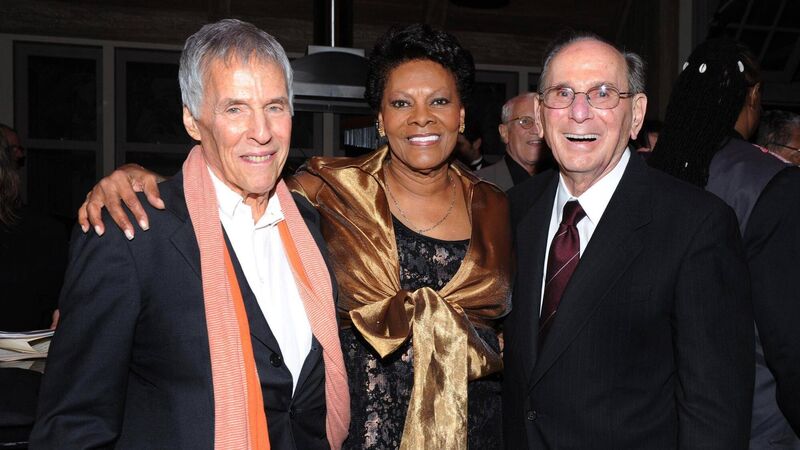Tom Dunne: If David wasn't there, would we have heard of Bacharach?

Bert Bacharach and Hal David with Dionne Warwick in 2012. (Picture: AP Photo/Vince Bucci)
My father-in-law's greatest refrain was, “and Hal David”. If you said “Burt Bacharach” he would add “and Hal David” before you’d finished the “…ach.” They were two names that were never to be used apart. It was Bacharach/David, just like it was Lennon/McCartney or Lieber/Stoller.
I thought of him last week with the news of Burt Bacharach’s passing. If drink was taken, he would sometimes add that without David we’d never have heard of Bacharach. This was not 100% correct but, take their best years together (1962-1972) out of the equation and the picture changes very, very dramatically.





